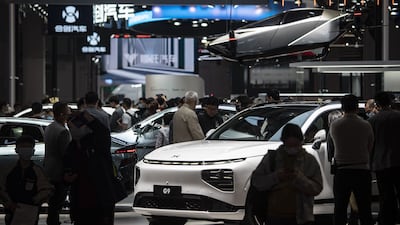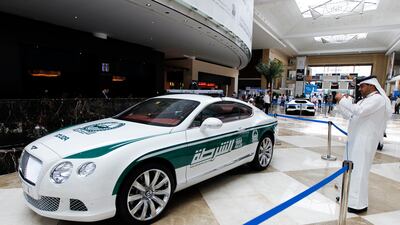Global electric car sales are set to surge by 35 per cent this year, helped by government subsidies and the tightening of carbon dioxide emissions standards, the International Energy Agency has said.
Electric car sales are projected to reach 14 million in 2023 from 10 million last year, the Paris-based agency said in its Global Electric Vehicle Outlook on Wednesday.
This means the share of electric cars in the overall market will rise to 18 per cent this year, from 14 per cent in 2022, the agency said.
“Electric vehicles are one of the driving forces in the new global energy economy that is rapidly emerging — and they are bringing about a historic transformation of the car manufacturing industry worldwide,” said the agency's executive director Fatih Birol.
“The trends we are witnessing have significant implications for global oil demand. The internal combustion engine has gone unrivalled for over a century, but electric vehicles are changing the status quo.
“By 2030, they will avoid the need for at least five million barrels a day of oil. Cars are just the first wave: electric buses and trucks will follow soon.”

China, the world’s manufacturing hub, accounted for 60 per cent of global electric car sales in 2022, agency figures showed.
Sales in Europe and the US grew 15 per cent and 55 per cent, respectively, last year.
“Ambitious policy programmes in major economies, such as the Fit for 55 package in the EU and the Inflation Reduction Act in the US, are expected to further increase market share for electric vehicles this decade and beyond,” the agency said.
The share of electric cars in total car sales in China, the EU and the US is estimated to rise to about 60 per cent by 2030, it added.
The rise in EV sales is also having “positive knock-on effects” for battery production and supply chains.
The battery manufacturing projects that have been announced worldwide would be “more than enough” to meet the demand for EVs until 2030 under the agency's net-zero emissions by 2050 scenario, the report said.
However, manufacturing remains “highly concentrated”, with the battery and component trade being dominated by China, which increased its share of global electric car exports to more than 35 per cent last year, the agency said.
“Other economies have announced policies to foster domestic industries that will improve their competitiveness in the EV market in years to come.”
The US Inflation Reduction Act, enacted last year, offers a series of tax incentives on wind, solar, hydropower and other renewables, as well as a push towards EV ownership.
Between August 2022, when the act was passed, and March 2023, major EV and battery makers announced investments totalling at least $52 billion in EV supply chains in North America, the agency said.

Meanwhile, electric car sales more than tripled in India and Indonesia last year, with their share in total sales rising to 1.5 per cent, it added.
In Thailand, the share of electric cars in overall sales rose to 3 per cent.
“A combination of effective policies and private sector investment is likely to increase these shares in the future,” the agency said.
In 2019, India, the world’s largest market for two-wheelers, approved a programme that would direct $1.4 billion to subsidise sales of electric and hybrid vehicles to curb pollution and reduce reliance on fossil fuels.
“In emerging and developing economies, the most dynamic area of electric mobility is two- or three-wheel vehicles, which outnumber cars,” the agency said.
“Their electrification is important to support sustainable development.”















